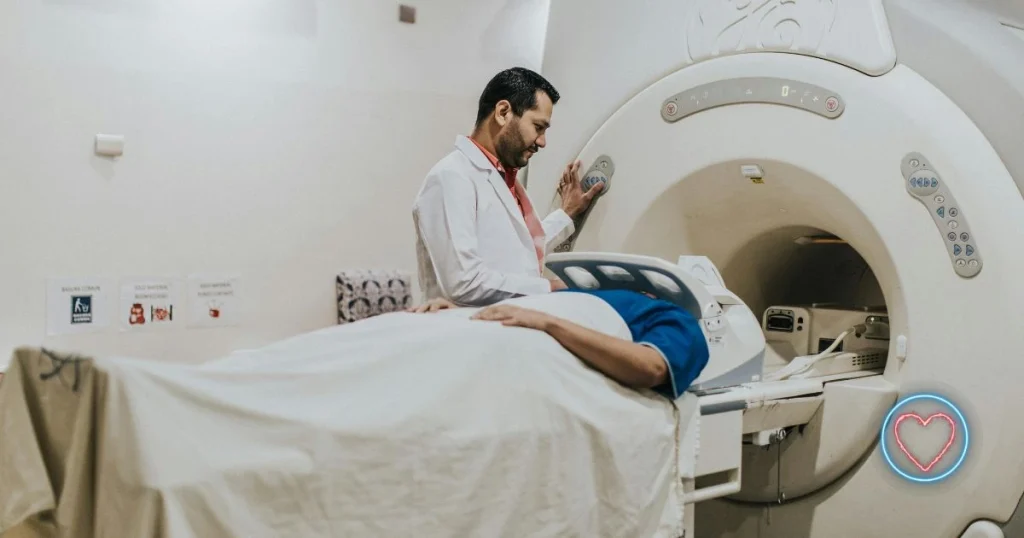Weight loss surgery, also known as bariatric surgery, has become a popular option for people in the UAE who struggle with obesity and have not had success with traditional weight loss methods. Many individuals in the UAE are choosing surgical procedures such as gastric bypass and gastric sleeve to achieve significant, long-term weight loss and improve health. Modern clinics in Dubai and Abu Dhabi offer experienced surgeons, advanced technology, and personalized support for every patient throughout their weight loss journey.
People thinking about weight loss surgery can expect a detailed evaluation, careful preparation, and guidance before, during, and after their procedure. Clinics provide full care teams, including nutritionists and exercise consultants, to help patients stay on track for the best recovery and long-term results. If you are wondering about the process, recovery, or cost, there are several trusted centers, such as bariatric clinics in Dubai and specialized hospitals, that offer comprehensive consultations and answers to common questions.
Key Takeaways
- Weight loss surgery in the UAE offers advanced and effective medical options.
- Patients receive step-by-step guidance from evaluation through recovery.
- Clinics in Dubai and Abu Dhabi have full support teams for better patient outcomes.
Overview of Weight Loss Surgery in UAE
Weight loss surgery is a widely available option for people in the UAE who struggle with severe obesity or weight-related health issues. Hospitals provide a range of treatment choices, clear eligibility criteria, and internationally accredited facilities for patient safety and success.
Types of Weight Loss Surgery Procedures Available
Patients in the UAE can choose from several types of proven weight loss surgeries. The most common are gastric bypass, gastric sleeve (sleeve gastrectomy), and adjustable gastric banding. Each procedure changes the digestive system in a unique way to help reduce food intake or limit calorie absorption.
- Gastric Sleeve: Removes a large portion of the stomach, leaving a small tube-shaped section. This smaller stomach helps patients feel full after eating less food.
- Gastric Bypass: Reroutes the digestive tract so food skips part of the stomach and small intestine. This leads to both less food intake and fewer calories absorbed.
- Adjustable Gastric Banding: A band is placed around the upper part of the stomach to create a smaller pouch.
- Other Procedures: Some hospitals may offer procedures like biliopancreatic diversion, but these are less common.
Each option has its own risks and benefits. Doctors help patients select a procedure based on their health needs and goals. For more details on available types, Emirates Hospitals provides helpful breakdowns.
Candidacy and Patient Eligibility
Not everyone qualifies for weight loss surgery in the UAE. Patients usually need to meet certain criteria before doctors will recommend a procedure. Most hospitals follow international guidelines to determine eligibility.
The main eligibility requirements include:
- BMI over 40, or over 35 with related health problems such as type 2 diabetes, high blood pressure, or sleep apnea
- Having tried and not succeeded with non-surgical weight loss methods (like diet, exercise, or medication)
- Being in good enough physical and mental health for surgery and recovery
Doctors also screen for readiness to follow new eating habits and regular post-surgery follow-ups. Detailed evaluation and counseling are part of the process to ensure safe and lasting results. More information on candidacy is available at the Al Zahra Hospital Dubai.
Accredited Medical Facilities
Leading hospitals and clinics in the UAE provide weight loss surgery in accredited, well-equipped environments. These facilities follow strict safety standards and use modern surgical technology.
Patients can expect care from teams that often include surgeons, nutritionists, anesthesiologists, and nurses familiar with bariatric care. Many centers hold international accreditations and are experienced in treating both residents and traveling patients.
A few well-known hospitals for bariatric surgery in Dubai and Abu Dhabi include Cosmesurge, CMC Dubai, and Emirates Hospitals. These centers offer patient support, medical monitoring, and access to experienced doctors familiar with the needs of bariatric patients.
Pre-Surgery Evaluation and Preparation
Before undergoing weight loss surgery in the UAE, patients must go through a detailed evaluation and preparation process. This step is needed to help find out if surgery is right for the patient and to help them get ready for lasting lifestyle changes.
Medical Assessments and Screening
Every candidate for weight loss surgery is required to have a full medical check-up. Doctors review the patient’s medical history and current health in detail. They often order blood tests, ECG, chest x-ray, and other tests to check the heart, kidneys, liver, and other organs.
Doctors look for any conditions, like diabetes or high blood pressure, that may affect surgery or recovery. Body mass index (BMI) and previous weight loss efforts are also measured. The patient will also meet with other specialists if needed—such as a cardiologist or endocrinologist.
These assessments ensure the surgery is safe for the patient and pinpoints any risks that need to be managed. Clinics like Fakeeh University Hospital and Emirates Hospital Group in Dubai follow this thorough approach for every patient.
Pre-Operative Counseling
Patients take part in several counseling sessions before surgery. A dietitian explains what kinds of food and drinks will be allowed before and after surgery. Patients learn about portion sizes, protein needs, and important vitamins.
A psychologist or counselor talks about mental preparation, including how to cope with possible changes in mood or eating habits. Patients discuss their expectations and any fears they may have.
These sessions help the patient understand the need for lifelong commitment to healthier habits. Support from nurses, nutritionists, and even fitness coaches is often offered, as described by the Enfield Royal Clinic. This team approach gives ongoing guidance and prepares patients for a successful recovery.
The Weight Loss Surgery Process
Weight loss surgery in the UAE involves advanced techniques, detailed hospital protocols, and careful postoperative care. Each step—from surgical options to the patient’s stay and follow-up—has important roles in recovery and long-term results.
Surgical Techniques Used in UAE
Doctors in the UAE use several surgical techniques for weight loss, with a strong focus on safety and effectiveness. Common options include gastric sleeve, gastric bypass, and adjustable gastric band procedures. Each of these surgeries works by changing how the stomach and, in some cases, the digestive tract functions, which limits food intake or absorption.
Gastric sleeve surgery removes a large section of the stomach, so the patient feels full after eating less food. In gastric bypass surgery, the stomach is divided and attached to the small intestine, which both restricts food intake and changes digestion.
Advanced technology and minimally invasive tools are often used to lower risks and help patients recover faster. Surgeons in the UAE complete thorough evaluations before recommending any operation. To learn more about what specific weight loss surgeries are available, see the detailed overview at Emirates Hospitals Group.
The Hospital Experience
Before surgery, patients meet with a team that includes doctors, nurses, and nutritionists. The hospital staff explains the steps, answers questions, and sets clear guidelines for what to do before the operation, such as fasting and stopping certain medications.
During the hospital stay, care includes regular checks of vital signs, pain management, and close monitoring for any problems. Most hospitals in the UAE use private or semi-private rooms, offer support for managing discomfort, and supply guides for walking and breathing exercises to lower the risk of blood clots.
Patient education is a focus, with staff explaining what to expect after leaving the hospital. For a sense of the patient journey, more information on hospital experiences can be found at Fakeeh University Hospital.
Immediate Postoperative Care
After weight loss surgery, the first days are about recovery and making sure no problems develop. Medical teams keep a close watch for signs of infection, blood clots, or leaks at the surgical site.
Patients usually start with a liquid diet and then slowly add soft foods as advised by dietitians. Monitoring includes checking fluid levels, pain, and how well the patient is healing. Support from nurses and nutritionists helps the patient learn new eating habits and prepares them for life after surgery.
Exercise and gentle movement are encouraged as soon as possible to help recovery. Regular follow-up visits and clear instructions for home care are given before discharge. To better understand aftercare plans, readers can check Enfield Royal Clinic.
Recovery and Long-Term Outcomes
Patients who have weight loss surgery in the UAE often want to know how recovery works and what to expect in the years ahead. Rest, frequent check-ups, and significant changes in diet and activity are all part of the experience after surgery.
Expected Recovery Timeline
Most people spend one to three days in the hospital after surgery. Full recovery at home usually takes about two to four weeks, but some may take longer, especially after more complex procedures.
During the first few weeks, patients often need to take time off work and avoid heavy physical activity. They may start with liquids, then move to soft foods, and slowly reintroduce solid foods as advised by their surgeon.
Some minor discomfort, bruising, or swelling is common. The surgical team may recommend pain medication and watch for signs of infection. While sleeve gastrectomy may have a shorter recovery period, gastric bypass and other operations might require longer healing and more support over time. See more about different surgeries and recoveries at Reem Hospital’s bariatric surgery page.
Follow-Up Support and Monitoring
Regular follow-up visits are a key part of care in the UAE. Patients attend scheduled appointments at one month, three months, six months, and then yearly to monitor their weight, nutritional status, and overall health.
Doctors often run blood tests to check for vitamin and mineral deficiencies. Nurses, dietitians, and psychologists may be part of the team to help with adjustment and emotional challenges.
Patient groups and education sessions are sometimes available to offer more support. Consistent follow-up helps identify complications early and gives patients the guidance needed for safe, steady progress. Learn about follow-up care and outcomes at this single-center study in the UAE.
Lifestyle Changes After Surgery
Weight loss surgery is only the beginning. To maintain healthy results, patients must be committed to lasting changes in eating and daily habits.
They should eat smaller, balanced meals and avoid foods high in sugar or fat. Drinking plenty of water and taking required supplements like multivitamins, calcium, and vitamin B12 are often necessary to avoid deficiencies.
Adding physical activity and avoiding habits such as smoking are strongly recommended. These steps, along with support from a medical team, help improve quality of life and reduce the risk of weight regain. Bariatric surgery in the UAE is linked to positive long-term changes, including better control of health problems such as diabetes and high blood pressure, as shown in this UAE bariatric outcomes study.
Cost, Insurance, and Medical Tourism Considerations
The price of bariatric surgery in the UAE can differ based on the type of procedure, hospital fees, and doctor’s experience. Insurance coverage and payment plans are important factors for patients to consider. Many people travel to the UAE for surgery because of its advanced facilities and skilled doctors.
Weight Loss Surgery Costs in UAE
Most patients notice costs can be lower in the UAE than in some Western countries, but prices still depend on several factors.
| Procedure Type | Average Cost Range (USD) |
|---|---|
| Gastric Sleeve | $7,000 – $12,000 |
| Gastric Bypass | $9,000 – $15,000 |
| Gastric Banding | $6,000 – $10,000 |
Costs usually include hospital stay, surgeon’s fees, anesthesia, and pre-op tests. Some packages may also add follow-up visits or nutritional support. Patients should check what is included before making a decision. Extra costs may apply for longer hospital stays or unexpected complications. Detailed quotes from clinics help avoid surprises.
Insurance and Financial Assistance
Not all insurance plans in the UAE cover bariatric surgery. Coverage depends on the provider, the reason for surgery, and medical need.
Many policies require proof that obesity is causing serious health problems, like diabetes or heart disease. Sometimes, insurance only covers the surgery if other ways to lose weight have failed. It is important for patients to review their insurance policy and confirm details with their provider.
For those without full coverage, hospitals may offer installment plans or financing options. Some clinics help patients with paperwork for insurance claims or third-party financing. For guidance on choosing insurance or financing options for weight loss surgery, see this comprehensive guide.
Advantages of Medical Tourism in UAE
The UAE is a popular choice for medical tourism due to its modern hospitals and experienced surgeons. Many clinics have international accreditation and follow strict safety standards.
Patients can benefit from shorter waiting times compared to other countries. Many facilities provide services in multiple languages, making communication easier for visitors. Hospitals sometimes offer full care packages, which include travel help, local transportation, and accommodation.
Cost savings attract many international patients. High-quality treatment, combined with the chance to recover in a safe and comfortable setting, makes the UAE attractive for weight loss surgery abroad. Access to skilled doctors further increases its appeal for overseas visitors seeking reliable care.
Frequently Asked Questions
People considering weight loss surgery in the UAE often have questions about costs, clinics, risks, effectiveness, qualifications of surgeons, and aftercare. Understanding these practical details helps patients make informed decisions and prepare for every step of their journey.
What is the average cost of bariatric surgery in Dubai?
The price of bariatric surgery in Dubai usually ranges from AED 30,000 to AED 60,000. Costs can vary based on the type of procedure, the hospital chosen, and what is included in the package. Some clinics may offer payment plans or include follow-up care in the cost.
Which are the top clinics for bariatric surgery in the UAE?
Several hospitals in the UAE are well-known for bariatric surgery. Clinics like Medeor Hospital, Reem Hospital, and Aster Hospital in Dubai provide bariatric care with skilled surgeons and modern facilities. Each center has its own approach and post-surgery support options. More information about these clinics can be found at Medeor Hospital, Reem Hospital, and Aster Hospital.
What are the potential side effects of undergoing weight loss surgery?
Some common risks after weight loss surgery include infection, bleeding, blood clots, or digestive problems. Patients may also face nutritional deficiencies or need vitamin supplements long-term. Regular doctor follow-ups are important to watch for and manage any problems early.
How does the success rate of sleeve gastrectomy compare to other forms of bariatric surgery?
Sleeve gastrectomy has a high success rate for weight loss and is often chosen for its balance of results and lower complication rates. Some procedures, like gastric bypass, may lead to more weight loss, but they might also carry higher risks or require stricter follow-up.
What qualifications should I look for in a bariatric surgeon?
Patients should look for surgeons who are board-certified in bariatric or general surgery. Experience with many successful bariatric surgeries is important. Membership in international surgical societies and access to a fully equipped hospital can be signs of quality.
Are there any comprehensive post-surgery support programs available in Dubai?
Many Dubai clinics offer support after surgery, including nutrition counseling, regular medical check-ups, and help from a multidisciplinary team. Programs often cover diet plans, physical activity guidance, and mental health support. This is offered at centers like Royal Clinic Dubai and other dedicated bariatric services.




















